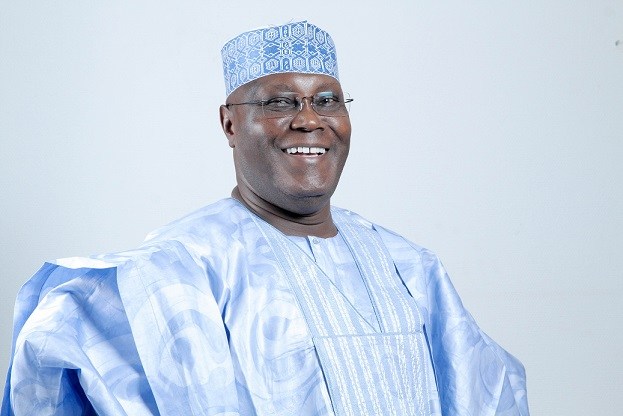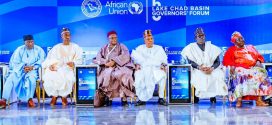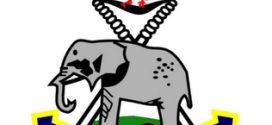He is a battle tested politician who is not unfamiliar with the complex intrigues and manoeuvrings of party and electoral competition. It is thus surprising that the campaign of the presidential candidate of the People’s Democratic Party (PDP), Alhaji Atiku Abubakar, continues to be dogged by some of the poor decision making that plagued his earlier failed attempts to be elected to the country’s apex political office of President. As a veteran in the game, one would have expected Atiku to pursue what is evidently his last bid for the coveted office with a lot more tact and wisdom. He projects himself as a ‘unifier-in-chief’ with the capacity, if elected, of forging greater cohesion in a country admittedly badly fragmented along primordial lines. Yet, Atiku has given the ruling All Progressives Congress (APC) the opportunity to brand him as a ‘divider-in-chief’ given the virtual civil war that rages in his party since his emergence as its presidential flag bearer raising questions as regards his ability to unite the country if he cannot offer cohesive leadership to his party.
Atiku’s emergence as the PDP’s presidential candidate was in violation of the party’s constitutional provision for rotation of presidential power between the northern and southern parts of the country although the presidential primary was ostensibly free, fair and transparent. Incidentally, his choice as Vice-Presidential candidate, Delta State governor, Dr. Ifeanyi Okowa, was an active participant in meetings of the Southern Governors Forum (SGF) at which it was resolved that the presidency shift back to the South after eight years in power of President Muhammadu Buhari from the North. Of course, the power rotation principle is neither a creation of the SGF nor is it simply an intra-party provision of the PDP constitution. It is an unwritten elite compact among dominant factions of the political class cutting across party lines since 1999 having its roots in the unjust annulment of the June 1993, presidential election won by the late Chief MKO Abiola on the platform of the defunct Social Democratic Party (SDP).
Prior to Abiola’s electoral victory in 1993, widely acknowledged as the freest and fairest polls in the country’s history, apex executive power had been domiciled in the north between the beginning of the second republic in 1979 under one civilian administration and two military regimes and the historic election. It was inevitable that the annulment of the election of a Yoruba President-elect by a northern-led military regime further strained inter- ethnic relations with regard to power sharing in the country. The protracted struggle against military dictatorship spurred by the annulment led to the consequent retreat of the military from the political space and the democratic restoration of 1999. In compensation for the injustice of the annulment, the presidency was conceded to the South- West by hegemonic factions of the political class resulting in General Olusegun Obasanjo and Chief Olu Falae of the PDP and Alliance for Democracy (AD) respectively being the only contestants for the office in 1999 with Obasanjo winning an emphatic victory with the support of the dominant political elite of the North, South-South and South-East.
After eight years of the Obasanjo presidency between 1999 and 2007, presidential power rotated back to the North with the election of the late President Umaru Yar’Adua. The latter’s untimely death in 2009 led to the constitutional ascension to office of his Deputy, Dr. Goodluck Jonathan from the South, who completed his late boss’s tenure and successfully ran for his own full term and won in the 2011 election. It is instructive that, despite being from a minority ethnic group, Jonathan achieved victory in 2011 with the support of the dominant political elite of parts of the North, the South-East, South-South and even the South-West following the collapse of the working relationship between Buhari’s defunct Congress of Progressive Change (CPC) and Asiwaju Tinubu’s Action Congress of Nigeria (ACN) and the latter supporting Jonathan.
Dr. Jonathan’s decision to contest for a second term in 2015 split the PDP down the middle with prominent northern leaders of the party including Atiku insisting that it was the turn of the North to produce the President. That crack was a key contributory factor to the victory of the then nascent APC in 2015 with the opposition party displacing an incumbent government at the centre for the first time in the country’s history. It is thus astonishing that after eight years of Buhari’s tenure, Atiku, another Fulani, sees nothing wrong in his seeking to wield presidential power for possibly another eight years until 2031! The argument that the last PDP President, Dr. Jonathan, was from the South and that this justifies an Atiku presidency is self-serving and unconvincing. The rotational presidency principle transcends party demarcations and applies to the nation as a whole. Given the current fragile state of Nigeria’s cohesion, a part of the country cannot monopolize presidential power for sixteen years without negative implications for national harmony. There must first and foremost be a stable, united and peaceful country before there can be a functional and effective political party.
Atiku’s strategists contend that his choice as the PDP presidential candidate is only a matter of pragmatic electoral strategizing as of all the contenders within the party, he has the best stature and structure to win a nationwide election. Yet, they criticize and deride the APC’s Muslim-Muslim ticket disregarding the party’ argument that the pairing provides the most tactical and strategic choice to guarantee its victory in the presidential election. Speaking at a stakeholders meeting of his party in Enugu last week, Atiku described himself as a “stepping stone” for the South-East to produce a president. He gave no rational explanation why this is so. According to him, “I’ve had a close relationship with the Igbo and this influenced my choices of Senator Ben Obi and Mr. Peter Obi as my running mates in my two previous outings as a presidential candidate…I have three children with Igbo blood flowing in them. I am saying this for the very first time in public. So, my relationship with Ndigbo did not start today”.
True, the Igbo have put all their political eggs in the PDP basket since 1999. The South-East has been the most solid and consistent electoral support base of the PDP in this dispensation. The region deserves the PDP’s presidential ticket. If he is indeed the unifier and patriot that he projects, why couldn’t Atiku support an Igbo presidential candidate and back such a person with his perceived influence and structure? Perhaps in that case, a Peter Obi would have remained in the party. As it is now, the strong possibility of Obi’s Labour Party (LP) understandably eating deeply into the PDP’s support base in the South-East is one of the reasons why The Economist Intelligence Unit has projected victory for the APC in the presidential election.
Taking a dig at the APC during the Enugu meeting, Atiku stated that the second Niger Bridge about being completed by the Buhari administration is not a favour to the South-East but to Nigeria as the country as a whole will benefit from the facility. But if Atiku loves the South-East so much, why did the administration in which he served for eight years as Vice President do absolutely nothing to actualize the second Niger Bridge and other infrastructure projects in the region being implemented by the APC government?
Given his presumed political experience, it is surprising that Atiku is handling in a most cavalier manner the continued disaffection and dissension of the governor Nyesom Wike tendency in the party over the jettisoning of the zoning principle, his choice of running mate and the non-resignation of Dr. Iyorchia Ayu as National Chairman following the emergence of a northerner as presidential candidate. Atiku insists that Ayu’s continuation as party Chairman will no longer be tenable only if he wins the election and becomes President since both key positions cannot be occupied by persons from the same region. This not only negates the ordinarily principled Ayu’s promise to quit the position if a northerner became the presidential candidate before his election as Chairman, it creates the impression that Atiku is himself lacking in confidence as regards the probability of his winning the election. A National Chairman of southern extraction to succeed Ayu and achieve the regional balance being demanded can easily be actualized and necessary personnel changes effected to meet intra-party constitutional stipulations if Atiku possesses the political acumen and astuteness he is often credited with.
In any case, this is a completely avoidable crisis and a recurring pattern in Atiku’s leadership style. In 2007, he picked Senator Ben Obi as his running mate on the platform of the Action Congress (AC) without consultations with critical stakeholders of the party resulting in grievances that negatively affected the party’s performance in the election. PDP governors in the South-East were largely indifferent to Atiku’s campaign in 2019 because they were reportedly not carried along in the choice of Peter Obi as is running mate. And this time around, he could surely have handled his choice of Okowa as his running mate much better bending over backwards to carry along the diverse tendencies in the party particularly the not insubstantial Wike sympathizers.
But then, Atiku is not daft. He deliberately and consciously went all out to get the PDP presidential ticket despite the party’s zoning principle benefitting from Governor Aminu Tambuwal’s cynical skewed regional antics in the process. His support for the three critical offices/roles of National Chairman, Presidential Candidate and Director General of the Presidential Campaign to be allotted to northerners is deliberate. Asked during his last Arise TV interview how he would be affected by the choice of the APC Vice presidential candidate, Mr. Kashim Shettima, from the North-East, Atiku responded that Shettima is a minority Kanuri with presence in two states while he is Fulani with support base in more states. Atiku’s strategy is to sell himself as the candidate of the North in general and the Hausa-Fulani in particular in the hope that the South will be divided between the APC and LP. It is a divisive strategy but unlikely to fly.
It was the Northern governors in the APC who insisted that the party’s presidential ticket be zoned to the South in the interest of fair play and justice. Their support was pivotal to the emergence of Tinubu as the party’s presidential flag bearer. President Buhari could have used the power and influence of his office to steer the APC presidential primaries towards a different outcome. He did not and is the Chairman of the party’s Presidential Campaign Council. Whatever anybody may say, Buhari remains a political cult figure among teeming millions in the north.
Tinubu himself has cultivated and
maintained enduring close relationships with prominent stakeholders in northern politics over the last three decades. It is not for nothing that he is the Jagaban of Borgu. The APC northern governors have far more to gain working for the APC to retain power after Buhari than for the victory of an Atiku who cannot be relied upon to keep promises or abide by pledges. The Waziri Adamawa’s divisive northern strategy is from all indications Dead on Arrival (DOA).
 Hottestgistnaija.com
Hottestgistnaija.com





